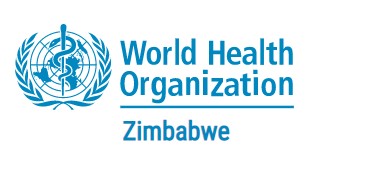Seventy-three (73) year old Brenda Mareva** was diagnosed with HIV in 2009 and commenced treatment same year. With ageing, she suffered a stroke in 2004 and was also initiated on hypertensive medication. In 2005, she was diagnosed of Parkinson’s disease, a brain condition that causes problems with movement, mental health, sleep, pain and other health issues. A few years later, Gogo Mareva was put on medication for chronic kidney disease in 2013.
The support Gogo Mareva has is her aged husband who has dementia. She has impaired motor function, slow movements, and tremors as well as slurred speech among other conditions. Due to the poor support system, she defaulted her HIV treatment in 2018. This has also led her into depression which she started treatment for this year.
Gogo Mareva is one of many people struggling with a double burden of HIV, and non-communicable diseases NCDs exacerbated with ageing.
As the world continues to make significant progress in the fight against HIV/AIDS, the need to address the unique challenges faced by people living with HIV as they age is continually growing. With advancements in medical treatments, more individuals are now living longer with HIV, leading to a growing population of older individuals who require specialized care and support. This shift requires adaptation of healthcare systems and social support networks to meet the evolving needs of this vulnerable population.
Speaking during a media science café jointly organized by Health Communicators Forum and the World Health Organization (WHO) recently in Harare, WHO Healthier Populations Cluster Lead Dr Trevor Kanyowa noted that ageing with HIV infection presents unique challenges as HIV heightens the risk of cancers, bone loss and cardiovascular disease. He said this is an emerging issue that require all stakeholders to prioritize with urgency.
“Older adults comprise an increasingly large proportion of those living with HIV. At the same time, these older adults exhibit a range of behaviors that place them at risk for HIV infection including low levels of prevention measures and relatively higher rates of multiple partnerships,” said Dr Kanyowa.
An estimated 3.6 million people aged 50 years and older are living with HIV globally and for the first time since the start of the HIV epidemic, 10% of the adult population living with HIV in low- and middle-income countries is aged 50 or older.
The intersection of HIV and ageing brings forth a range of complex issues that demand attention. Firstly, older individuals with HIV often face a higher risk of developing age-related comorbidities like Gogo Mareva, such as cardiovascular diseases, diabetes, and certain cancers. The presence of HIV can accelerate the progression of these conditions, requiring a comprehensive approach to healthcare that addresses both HIV management and age-related health concerns. Furthermore, ageing with HIV can also lead to unique psychological and social challenges. Many individuals in this population face isolation, stigma, and discrimination, which can have detrimental effects on their mental well-being. The need for accessible mental health services and support groups tailored to the specific needs of older individuals living with HIV is crucial to ensure their overall quality of life.
“Unfortunately, there are currently no campaigns targeting older adults so many perceive themselves to not be at risk of contracting HIV despite evidence showing that older males are sexually active while the changes in women’s vagina such as vaginal wall dryness and thinning increase a woman’s risk of acquiring HIV,” said Clinician and HIV Researcher Dr Cleopas Chimbetete.
Collaboration between healthcare providers, policymakers, and community organizations is essential. Continuous development of comprehensive care models that integrate HIV management with geriatric care is critical, ensuring that the unique needs of older individuals with HIV are met. This has been one of WHO priority areas. Furthermore, raising awareness and reducing stigma surrounding HIV and ageing is paramount. Education campaigns need to be tailored for specific age groups to help dispel misconceptions and promote understanding, fostering a more inclusive society for older individuals living with HIV.
**Name changed to protect identity of the individual.
Distributed by APO Group on behalf of World Health Organzation (WHO) - Zimbabwe.
Latest Stories
-
Nungua Town XI defeats Ghana Internationals in Kplejoo Pre-Festival Match
29 minutes -
Osu Castle hosts diplomatic showcase of wellness as Ghana, India unites for International Day of Yoga
1 hour -
U.S. and Israeli Strikes on Iran: A Racist, Colonialist Assault on Sovereignty
2 hours -
Prof Gyampo clarifies interaction with Special Prosecutor over raid on SMS offices
2 hours -
Prof Gyampo called and texted OSP during raid on SML – OSP claims
2 hours -
Nigeria sprinter Favour Ofili switches allegiance to Turkey
2 hours -
Ahwoi and Bartels-Kodwo families open residence to mourners following passing of Ama Adoma Bartels-Kodwo
2 hours -
Mpox Outbreak: Western Regional Health Directorate springs into action
3 hours -
OSP rebuts Gyampo’s ‘vendetta’ allegation over investigation into Ofori-Atta
3 hours -
Ukraine still holds ground inside Russia’s Kursk, commander says
4 hours -
Nkwanta South MCE pays courtesy call on national Chief Imam, seeks prayers for peace
4 hours -
Kwasi Sibo helps power Real Oviedo to LaLiga promotion after 24-year wait
5 hours -
Broadcast and Build: How 2 of Ghana’s leading media giants are driving a bold socio-economic reset through strategic trade fairs
5 hours -
Actress Kalsoume Sinare named Ghana’s ambassador to Spain
6 hours -
Nkyinkyim says band music pays, but only with proper investment
6 hours

